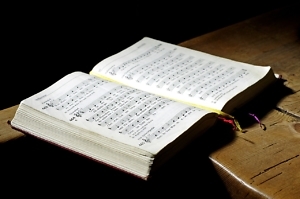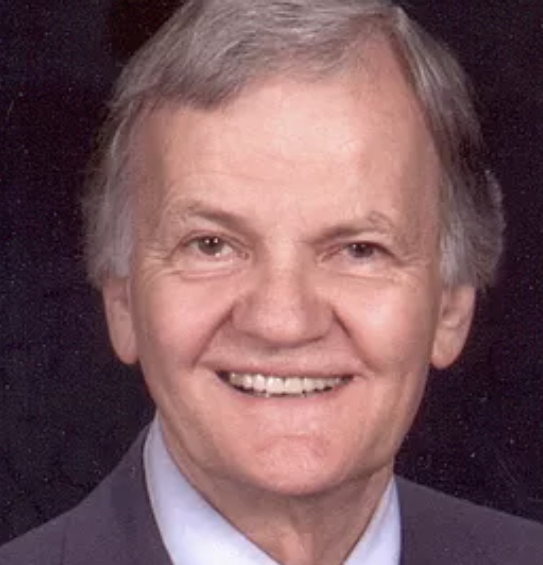Corrine and the Soloist
My intuition said we were headed for disaster
It was Christmas Sunday morning, 2000. We were visiting relatives in southeast Tennessee and attended a small church in Graysville. The plain sanctuary was brightly decorated with greenery sprigs. The worship program outlined a well-designed service that would include “special music” by parishioners interspersed with scripture readings.
 The congregation vibrated with anticipation, everyone dressed up for the occasion, the air a startling series of surprises thanks to excessive early-morning splashes of perfume and aftershave. Reading the order of worship, I began to warm with Christmas sentiment — authentic gratitude for God’s incomparable expression of love — as I slowly worked my thoughts through the list of familiar hymns and carols we would soon sing or hear. Then one stopped me cold.
The congregation vibrated with anticipation, everyone dressed up for the occasion, the air a startling series of surprises thanks to excessive early-morning splashes of perfume and aftershave. Reading the order of worship, I began to warm with Christmas sentiment — authentic gratitude for God’s incomparable expression of love — as I slowly worked my thoughts through the list of familiar hymns and carols we would soon sing or hear. Then one stopped me cold.
The last song was a male solo, “O Holy Night.”
Now, sometimes “O Holy Night” is sung as a show-off piece, cheapened into a cabaret act that invites worship of the performer, not the Creator. Or, it can facilitate praise. I have known my personal praise magnified a hundredfold as it soared to heaven on the wings of that song.
Or, that song can grate you senseless. I’ve heard it tried by singers so bad you would wear police sirens over your ears before you’d listen again, and this Christmas Sunday my intuition said we were headed for one of those disasters. What a shame to end the service with a shambles like that, I thought.
The service went well. It was quality worship, though it would have been better had I not let my thoughts periodically flit to imagining the calamity of the last song. Actually, we moved through the program all too swiftly, for the specials were good and our congregational singing joyful.
The time arrived for “O Holy Night,” and I trembled when I saw that it was Corrine who went to the piano to accompany the young man who stood to sing.
Corrine had been playing the piano in that church for more than 60 years, and she wasn’t a kid when she started. She was born with tremendous aptitude and had developed it well — she never met an arpeggio she couldn’t master — but now she was 94, seriously bent from the years, her hands gnarled with arthritis.
 Corrine’s love of life and her evermore friendliness sparkle through her thick glasses, but when I’ve heard her at the piano I’ve wondered if she wasn’t using the rapid, random hand movements of a Tennessee plowboy scratching his huntin’ dog. She loves her long-caressed arpeggios and would feel disloyal if she left out a note, so she scoops and tumbles them in by handfuls, throwing in plenty, erring on the side of generosity. As a person, she is a wonder and a delight; her music, only a wonder.
Corrine’s love of life and her evermore friendliness sparkle through her thick glasses, but when I’ve heard her at the piano I’ve wondered if she wasn’t using the rapid, random hand movements of a Tennessee plowboy scratching his huntin’ dog. She loves her long-caressed arpeggios and would feel disloyal if she left out a note, so she scoops and tumbles them in by handfuls, throwing in plenty, erring on the side of generosity. As a person, she is a wonder and a delight; her music, only a wonder.
The young man nodded to her. She sprinted a few runs up and down the keys, creating a sound that evoked an image of tiny Keystone Cops running pell-mell up and down a xylophone in pursuit of wooden-shoed gerbils. The song began, and the young man’s voice rose clear as a flute, strong as a trumpet, precisely on pitch, each word enunciated correctly, the tone reverent.
Beginning with the careful voice of awe — O holy night, the stars are brightly shining — and soaring to high notes of triumph, the soloist crafted each phrase to perfection. His vocal power, always under control, became thunderous in praise: Fall on your knees / O hear the angels’ voices. The congregation and I were enthralled. The piano searched, staggered, stumbled, tried to catch up. The clashing mismatch of musical qualities was extreme, yet we sensed a satisfying, discord-transcending beauty.
The carol finished, the singer smiled deeply at Corrine and with a humble nod said, “Thank you, Grandma.”
He walked to the back of the small sanctuary and spoke to us all. “Thank you all for letting me be with you,” he said and left the building.
The pastor, back at the pulpit, explained the abrupt exit: “He regrets having to leave quickly, but he must get to the airport and fly back to his job in New York City — where he will sing tomorrow at the Met.”

Copyright © 2020 by Richard Walters. All rights reserved. Richard Walters is a busier-than-ever retired psychologist/professor. He and Diana, also a writer, recently celebrated 31 years of honeymoon and moved to Tennessee as soon as they could. They publish materials to assist visitation with dementia patients.


